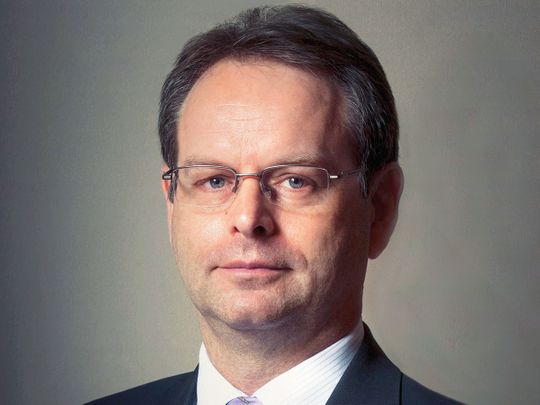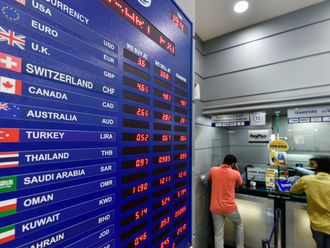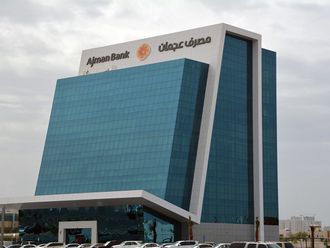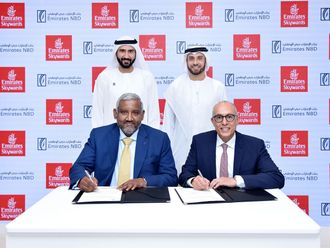
Dr. Owen Young, Regional Head of Wealth Management, Europe, Middle East and Africa, Standard Chartered Bank, speaks to GN Focus on why the hybrid model of people and technology is the future
How does Standard Chartered adapt to the changing needs of clients and differentiate itself from new competitors?
At Standard Chartered Bank, our clients remain at the centre of everything that we do. The key is to continually engage with clients to thoroughly understand their needs and how these needs evolve over time. Clients’ needs are not only in the form of investment vehicles and products, but also in the delivery method – can we meet our clients’ needs on choice of engagement model? Can we be flexible in the operating hours that we offer wealth capabilities to our clients, etc? We also take advantage of our international network. For example, we have just won an award for our Retirement Product in Singapore. Along with our consistently enhancing digital platforms to meet the changing needs of the clients, our unparalleled wealth specialist capabilities [investment advisers, insurance specialists and treasury specialists] is what makes us unique in the market. We offer a truly open architecture platform for clients to invest into an expansive local and international product offering.
Technology is at the heart of your strategy. How does Standard Chartered invest in digital to stay on top of competition?
Investing in technology is complex. Client needs, regulations and technology capabilities are continually changing. We need to be able to balance our investments across these evolving trends. The trick is to determine when does the client truly need a state-of-the-art solution versus a more pragmatic solution. To stay on top of competition, we have been adopting more agile ways of working. The aim of these approaches is to consistently deliver smaller incremental improvements in platforms and rapidly make available to clients, rather than wait for infrequent Big Bang deliveries. Also for an international organisation, it is key to be able to rapidly replicate a capability from one market to another. For example, we are currently developing a solution that will be rolled out across five markets in the Middle East and Africa concurrently. While digital capabilities and automated services are as important, we are moving towards a hybrid model of people and technology. We believe that our customers still appreciate banking with a human element, offering the personal touch and creating strong relationships.
What is your advice to clients in terms of making objective decisions during periods of extreme market volatility such as the current one?
We advise clients not to panic and, more importantly, not to make drastic decisions. Most investors should be really taking a long-term view and be less concerned by short-term market fluctuations. Studies have shown that investment approaches based on staying in the market have outperformed approach based on trying to time the market. Inasmuch as our front-line team are keeping close to our clients, we are also encouraging our clients to work with their respective relationship manager and investment adviser who will be able provide them with relevant market information and help them review their portfolios in an objective, unemotional and unbiased manner. These front-line staff are supported by the bank’s team of experts and specialists.
What is your outlook for the wealth management sector in the UAE and beyond post the crisis?
The sector will continue to see sweeping changes in the next few decades, which will require the industry to be more geared towards focusing on the following areas:
Personalised value propositions: A key approach to investment is recognising and understanding the various natural or cognitive biases that can influence the decisions we make every day. The success of this approach comes from understanding investor behaviour at a deeper level, so both investors and advisors can get more decisions right, especially important in times of market turmoil.
Sustainable investments: The industry will need to offer investments that generate measurable social or environmental benefits alongside strong financial returns, backed by solid compliance measures.
Digital technologies and data: Wealth management providers must assess how client needs, business, and operating models will evolve in the future, and they must determine where to play and how to position themselves in light of those shifts.
For the UAE specifically, while we see investors from across our international network being interested in investing in the country, we also see UAE-based investors expressing strong interest in investing in other markets. The key challenge is to ensure that the UAE investment environment encourages investors [both domestic and international] to invest here.
This includes having attractive wealth management products, a pool of wealth management professionals, a strong legal and regulatory framework and a vibrant technology sector.












